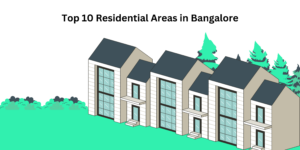Owning or renting a house has its own sets of benefits and drawbacks. Although owning is the most desirable action, it’s only sometimes suitable or possible, especially when you are temporarily moving through cities or tied to financial circumstances. On the other hand, renting a house is the easiest, fastest, and most efficient way to find an abode. But renting has its financial hurdles.
You can overcome all those by emphasizing renting a house checklist.
There are numerous significant factors that you need to take into consideration while renting a house. As many benefits as renting a house offer, all these factors decide the now and future renting convenience. To make it easier, we have cultivated an essential checklist for renting an apartment or house.

10 Things on the Checklist for Renting an Apartment
There is a long list of factors to consider before renting a house. This comprises aspects pertaining to the house or apartment’s physical state, related expenses, and proper paperwork. In this definitive guide, we have covered every prerequisite. Follow this renting-a-house checklist to ensure seamless renting.
1. Carry Out the Physical Inspection of the House
Knowing the condition of the house or apartment is essential before you decide to move to it physically. The purpose of the inspection is to know and record the initial and existing state of your rental house or apartment.
Before renting, you must visually assess the house or apartment.
Check the plumbing, electrical, and sanitary equipment, furnishings, and accessories. You must go to the apartment or owner as the renter to verify the address and discuss any modifications you might desire. If they are worthwhile before you move in, the owner might give them some thought. A physical examination aids in preventing misunderstandings between the parties that can develop later.
2. Carefully Read the Terms of the Lease
The lease terms are one of the most important factors when renting a house or apartment. It can cause you a lot of inconveniences if overlooked or ignored. Once you have decided to rent a property, ensure that you have read the terms thoroughly and in-depth.
To ensure everything is reasonably standard, it’s a good idea to have a realtor and an attorney review it. When reviewing the terms, check the policies for pets, maintenance and upkeep requirements, how and when to pay your rent, and procedures for breaking a lease. You should also review any guidelines pertaining to receiving a security deposit refund and subletting the property (if you plan to leave for part of the year). Do your research before signing a formal lease since the last thing you want is a landlord giving you a surprise.
3. Know the Neighborhood
You must research and know about the neighbourhood that you are moving into. We all know that renting isn’t a long-term solution, but you wouldn’t want to be stuck in a horrible neighbourhood. You must research the neighbourhood before settling to ensure it’s a safe and practical location. You should also research if it is close to all the amenities like schools, colleges, hospitals, hotels, gas stations, and reliable transportation. Besides all these, you should also research whether services like dining establishments, supermarkets, regulations governing parking, and gyms are nearby.
4. Obtain Renters Insurance Once You Move In
Minor or severe accidents are always unforeseen, unthought-of, and unexpected. When you move into a new rented house, you never know what will happen. Even a home in the most secure neighbourhood is susceptible to unforeseen accidents. These tragic occurrences, which range from fires and other natural calamities to break-ins and theft, occur much too frequently.
The best course of action is to purchase renters’ insurance so that you are prepared. A landlord’s insurance may cover the structure, but it won’t cover your possessions. Instead, you will require renters’ insurance to assist in replacing your belongings in the event of fire, theft, or water damage. Additionally, you could want it to cover medical expenses if accidents happen within the house.
5. Maintenance Charges
The owner and renter may disagree due to clauses requiring yearly and monthly maintenance. Therefore, a renter should be fully aware of the terms and circumstances before renting the apartment. Regular maintenance items like electrical boards, wiring, and water taps might be on your priority list. Still, the colour of the wall and significant interior or exterior damage repair might become contentious. Therefore, this must be discussed straight away.
6. Inclusions in the Rental Agreement
Your rental agreement must include several items to prevent future misunderstandings with the landlord. Before signing the lease or moving in, carefully note down the start and end date of the tenancy. Check whether the payable rent amount and the payment frequency are included in the agreement. This will help you avoid any aversion. The rental agreement should also include the following:
- Paid security amount.
- Maintenance charges.
- Responsibility for the repair payment.
- Conditions of agreement termination.
- The notice period for vacating the house.
7. Check the Documents of the House or Flat
When renting a house or flat, you wouldn’t want to be a part of any fraud. To avoid this, ensure the property is free of fraud and title issues before renting the apartment or house of your choosing through the broker or the owner. You can ask for documentation like the chain of title transfer, the most recent water and energy bills, the general layout and any adjustments made (if any). This will help you know if you are secure from any fraud in the rental process.
8. Learn How Rent Increases Work
The minimum length of stay should be expressly stated in the lease agreement between the tenant and the owner. This lock-in period typically lasts one year. Additionally, the notice period, advance security modification, and power bill payment should be considered while leaving the apartment. For this reason, before moving into the residence, the lease agreement should be thoroughly reviewed, and any questions should be answered.
At the time of signing the agreement, the topic of the percentage increase in the rental fee must be discussed. The rent cannot be legally increased without the tenant’s consent if the lease has a stipulated period (e.g., one year). The only three legal ways to raise the rent in a periodic assured shorthold tenancy (one that is month to month, for example) are as follows:
- The tenant agrees to pay the landlord’s proposed rent increase.
- The written lease agreement permits rent increases according to a specified formula (for example, 5% rent increases every 12 months).
- To raise the rent, the landlord follows a legal process.
9. Watch Out for the Pet Policy
It’s crucial to confirm that your new apartment is pet-friendly. Find out whether your landlord has any pet restrictions or limits on the number or kind of pets you are allowed to have. Some landlords, for instance, accept dogs but not tiny pups, while others forbid you from having more than one or two pets inside the home.
Ensure you have spoken with the landlord or building’s management about the pet policy before renting a place. Your landlord could occasionally concur, but the society members might be a problem. Pet owners occasionally need to be permitted to walk their cherished animals inside the structure.
10. Check if They Allow Roommates and Visitors
Whether you’re a bachelor and wish to live with pals, you must first ask your landlord for permission and find out if they allow it. Not all landlords will permit you to have roommates, so you must inquire about their policy before looking for housemates to share your residence. In this manner, you may locate a new roommate to cover your monthly rent even if one of your housemates vacates for whatever reason.
Final Takeaways
You would undoubtedly be eager to move in when you finally find a house in the area you want to rent after numerous excursions. And that action could make you endure the struggle and inconvenience you were never ready for. It could force you to go through everything from creating misunderstandings to leading arguments. That’s why, to make your stay in the home pleasant, you must emphasize this is renting a house checklist. It would make your stay enjoyable. Crossing out this checklist for renting an apartment will save you from many struggles and inconveniences.


